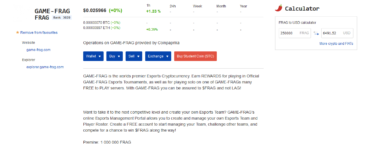Before everything, Spotify has democratized the music business, providing a platform for artists of all backgrounds and genres to showcase their work. By means of Spotify’s user-friendly interface and strong recommendation algorithms, listeners can easily stumble upon lesser-known artists whose music resonates with their tastes. This democratization has empowered unbiased musicians, allowing them to achieve a global viewers without the backing of major record labels. As a result, the music industry has turn into more numerous and inclusive, with a greater number of voices and styles being celebrated.
One in all Spotify’s most influential features in artist discovery is its personalized playlists, equivalent to Discover Weekly and Release Radar. These playlists leverage machine learning algorithms to curate a collection of songs tailored to every consumer’s listening history and preferences. By introducing listeners to new tracks and artists based mostly on their current tastes, Spotify encourages exploration and serendipitous discovery. This personalized approach not only enhances the listener expertise but also exposes artists to audiences who are likely to appreciate their music.
Moreover, Spotify has revolutionized the idea of music curation, shifting away from traditional radio stations and album releases towards a more dynamic and fluid model. With Spotify’s huge catalog and consumer-generated playlists, listeners have unparalleled access to a various array of music curated by both algorithms and fellow users. This shift towards curation based mostly on individual preferences fairly than mass attraction has empowered listeners to discover area of interest genres and discover artists outside of the mainstream.
Nonetheless, while Spotify has undoubtedly expanded the attain of artists and facilitated greater discovery, it also poses sure challenges. One notable concern is the platform’s impact on artist compensation. Despite its widespread use, Spotify has faced criticism for its low royalty rates, with many artists struggling to earn a livable earnings from streaming alone. While Spotify has taken steps to address this subject, comparable to introducing a “tip jar” characteristic and increasing its payouts to artists, the talk over fair compensation within the streaming period remains unresolved.
Additionally, there are issues concerning the homogenization of music consumption habits in the age of streaming. With algorithmic recommendations guiding listeners towards related-sounding artists and songs, there’s a risk that numerous voices and genres may be overlooked in favor of mainstream trends. While Spotify’s recommendation algorithms aim to introduce listeners to new music, they could inadvertently contribute to a narrowing of musical tastes if not balanced with efforts to promote diversity and exploration.
In conclusion, Spotify has had a profound impact on artist discovery and music consumption habits, democratizing the music business and empowering listeners to discover new genres and artists. By means of personalized playlists and algorithmic recommendations, Spotify has revolutionized the way individuals discover and engage with music, fostering a more dynamic and inclusive musical landscape. Nevertheless, challenges stay, together with concerns over artist compensation and the potential homogenization of musical tastes. As Spotify continues to evolve, striking a balance between discovery and diversity will be essential in shaping the future of music consumption.
In the event you loved this article and you wish to receive details relating to best Spotify playlists for work kindly visit our own webpage.

 by francescabanksto
by francescabanksto





